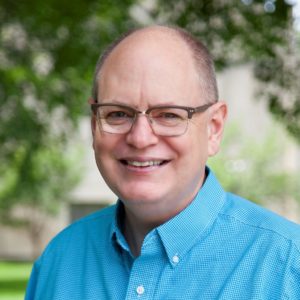Read: Matthew 6:24-34
No one can serve two masters. (v. 24)
On the way to church one Sunday morning, our six-year-old daughter said, “I need some money for the Sunday school offering.” Searching her purse, my wife asked our four-year-old son if he needed money for the offering too.
“Nope,” he said. “They let me come for free.”
Oh, to be four years old!
It’s said the first law of economics is “there is no such thing as a free lunch.” You might not pay for your lunch, but someone always does. The first law of ecclesial economics, then, is “there is no such thing as a free church.” Regardless of whether or not you put any money into the offering plate, someone paid for the lights to be on and a long list of other expenses.
Since church giving is voluntary, the church has a vested interest in people’s giving. The church—along with all its extensions like Words of Hope and Western Theological Seminary (where I used to work)—has an interest in whether or not you give.
But having confessed that self-interest, I must add that your self-interest is at stake here too. Generous giving is not only in the church’s interest, it is in her members’ interest as well. The Bible is full of verses about the dangers of money for the simple reason that there is no better indication of what you actually believe in and put your trust in than how you relate to money. You cannot serve two masters. In what (or whom) do you trust? —Jeff Munroe
As you pray, ask God to help you trust him.
About the Author
Jeff Munroe is the editor of theReformed Journaland, in addition to being the author of the best-selling book Reading Buechner: Exploring the Work of a Master Memoirist, Novelist, Theologian, and Preacher, is also a poet, blogger, and essayist. His work has appeared in Christianity Today, The Christian Century, US Catholic, and The Reformed Journal.
- Jeff Munroehttps://www.woh.org/author/jeff-munroe/
- Jeff Munroehttps://www.woh.org/author/jeff-munroe/
- Jeff Munroehttps://www.woh.org/author/jeff-munroe/


